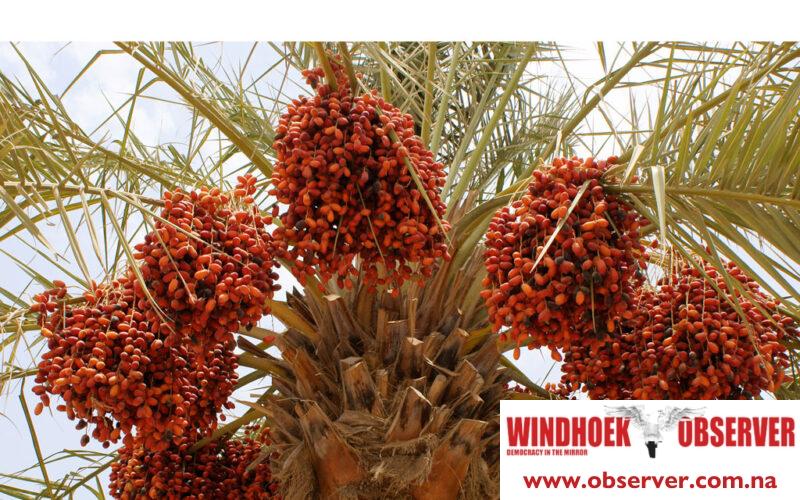Niël Terblanché
Namibian horticultural products are making a significant mark in the global market, with dates leading the way.
According to Calle Schlettwein, the Minister of Agriculture, Water, and Land Reform, Namibia’s producers have experienced increased access to global markets in recent times.
In 2022, a notable 36 percent of Namibia’s agronomy and horticultural production, consisting chiefly of products like grapes, onions, tomatoes, sweet peppers, butternut, dates, blueberries, and watermelon, found their way to international consumers.
Schlettwein pointed out that Namibia celebrated its first-ever soft citrus and grapefruit exports in the first quarter of the current financial year. These exports garnered a significant value of N$1.5 million, remarkably with zero rejections.
Furthermore, blueberry cultivation is on the rise. The Mashare irrigation project and Komsberg along the Orange River have already witnessed increased cultivation with more land being prepared for planting even more of the plants.
However, the most prominent product in the second quarter was the dates, generating a whopping N$25.8 million in export earnings. They were followed by tomatoes and vegetable seeds, which brought in N$3.3 million and N$1.4 million, respectively.
On the import front, the Namibia Statistics Agency (NSA) reported that potatoes were the prime horticultural import, incurring a cost of N$17.2 million in the second quarter. Apples and onions trailed, with import bills amounting to N$8.7 million and N$7 million, respectively.
Despite these export successes, the overall Namibian agronomy production landscape reflects a downturn.
According to the NSA, there’s been a steep decline of 60.1 percent in production from 55,036 tons recorded in the second quarter of 2022 to just 21,953 tons in the same quarter this year.
This slump is evident across all crops, with white maize, wheat, and millet registering declines of 60.4 percent, 54.5 percent, and 11.9 percent, respectively.
These figures underline the challenges and opportunities that lie ahead for the Namibian horticultural sector.
Schlettwein said that with the right strategies and investments, Namibia can further bolster its position in the global market and potentially counteract the declining production in its agronomy sector.




